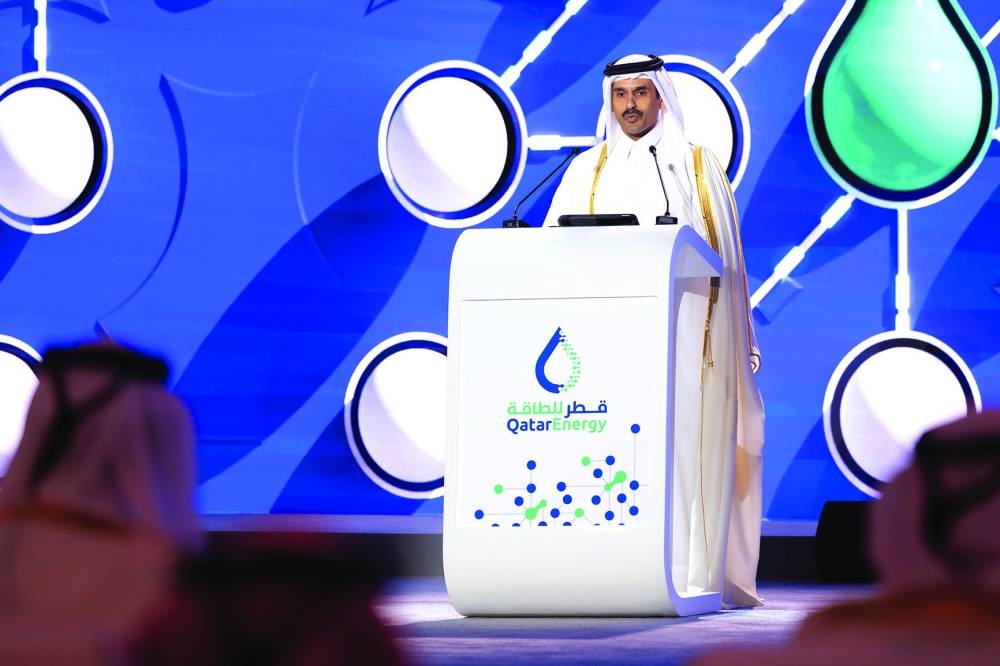Ras Laffan Petrochemical Complex will have multiplier effects on Qatar’s economy as it is expected to generate significant economic benefits for the country including increased tax revenue and foreign investment, noted HE the Minister of State for Energy Affairs Saad Sherida al-Kaabi.
On Monday, His Highness the Amir Sheikh Tamim bin Hamad al-Thani laid the foundation stone for the $6bn Ras Laffan Petrochemical Complex, one of the largest in the world, which will raise Qatar’s overall petrochemical production capacity to about 14mn tonnes a year by the end of 2026.
The Ras Laffan Petrochemicals complex consists of an ethane cracker with a capacity of 2.1mn tonnes of ethylene per year.
The 435-acre project site also includes two polyethylene trains with a combined output of 1.7mn tonnes per year of high-density polyethylene (HDPE) polymer products.
QatarEnergy has joined hands with Chevron Phillips Chemical Company (CPChem) on the projected and created a joint venture, in which QatarEnergy will own a 70% equity share, and CPChem 30% stake.
Together their large and diverse portfolio will not only help meet the world’s growing needs for advanced plastics and petrochemicals, but also enable balanced growth and facilitate human development in a responsible and sustainable manner.
Speaking at Ras Laffan on Monday, al-Kaabi noted Ras Laffan Petrochemical Complex is QatarEnergy’s largest investment ever in country's petrochemical sector, and marks an important milestone in the country’s downstream expansion strategy.
The petrochemical complex will not only facilitate further expansion in Qatar’s downstream and petrochemical sectors, but will also reinforce the country’s integrated position as a major global player in the upstream, LNG and downstream sectors.
In a few years, the Ras Laffan petrochemicals complex will help meet the rising global demand for high-density polyethylene, when the largest ethane cracker in the Middle East and one of the largest in the world begins production in 2026.
Polyethylene is used in the production of durable goods like pipe for natural gas and water delivery and recreational products such as kayaks and coolers. It is also used in packaging applications to protect and preserve food and keep medical supplies sterile.
The facility will be constructed with modern, energy-saving technology and use ethane for feedstock, which along with other measures, is expected to result in lower greenhouse gas emissions than similar global facilities.
The integrated olefins and polyethylene facility will be utilising “state-of-the-art design and technology” during its construction and operation to promote energy efficiency.
It is important to stress the unique environmental attributes of this world-scale complex. It will have lower waste and greenhouse gas emissions, when compared with similar global facilities.
“Our prominent standing in the petrochemical industry will be further strengthened when we commence production of the Golden Triangle Polymers Plant in 2026, which we are developing in the US state of Texas at a cost of $8.5bn in partnership with Chevron Phillips Chemical, and which is considered the biggest in the world,” al-Kaabi noted.
The joint venture between Chevron Phillips Chemical (CPChem) and QatarEnergy is named for the Golden Triangle region encompassing the cities of Orange, Beaumont and Port Arthur, Texas.
Chevron Phillips Chemical President and CEO Bruce Chinn said, “This project advances CPChem’s long-held strategy to expand its operations in regions where feedstock is reliable and abundant and will help meet the global demand for polyethylene products.
“CPChem and QatarEnergy have a long history of safely building and operating petrochemical facilities, and this celebration represents the next step toward bringing these world-scale assets into our successful portfolio here in Qatar.”
The facility is designed to use modern, energy-saving technology, which along with other measures, is expected to result in lower greenhouse gas emissions intensity than similar global facilities.
QatarEnergy and CPChem successfully operate three joint ventures in Qatar – Qatar Chemical Company Ltd., Qatar Chemical Company II Ltd. and Ras Laffan Olefins Company.
Business
$6bn world scale Ras Laffan Petrochemical Complex to have multiplier effects on Qatar economy

HE the Minister of State for Energy Affairs Saad Sherida al-Kaabi speaking during the the foundation stone for the Ras Laffan Petrochemical Complex, which is one of the largest in the world.

